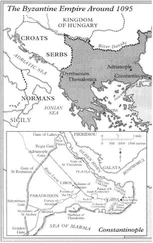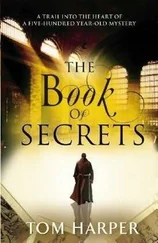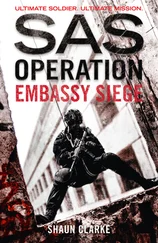Tom Harper - Siege of Heaven
Здесь есть возможность читать онлайн «Tom Harper - Siege of Heaven» весь текст электронной книги совершенно бесплатно (целиком полную версию без сокращений). В некоторых случаях можно слушать аудио, скачать через торрент в формате fb2 и присутствует краткое содержание. Жанр: Исторический детектив, на английском языке. Описание произведения, (предисловие) а так же отзывы посетителей доступны на портале библиотеки ЛибКат.
- Название:Siege of Heaven
- Автор:
- Жанр:
- Год:неизвестен
- ISBN:нет данных
- Рейтинг книги:5 / 5. Голосов: 1
-
Избранное:Добавить в избранное
- Отзывы:
-
Ваша оценка:
- 100
- 1
- 2
- 3
- 4
- 5
Siege of Heaven: краткое содержание, описание и аннотация
Предлагаем к чтению аннотацию, описание, краткое содержание или предисловие (зависит от того, что написал сам автор книги «Siege of Heaven»). Если вы не нашли необходимую информацию о книге — напишите в комментариях, мы постараемся отыскать её.
Siege of Heaven — читать онлайн бесплатно полную книгу (весь текст) целиком
Ниже представлен текст книги, разбитый по страницам. Система сохранения места последней прочитанной страницы, позволяет с удобством читать онлайн бесплатно книгу «Siege of Heaven», без необходимости каждый раз заново искать на чём Вы остановились. Поставьте закладку, и сможете в любой момент перейти на страницу, на которой закончили чтение.
Интервал:
Закладка:
‘That perhaps al-Afdal is not here?’
Nikephoros nodded. ‘And that is more disconcerting than any amount of tedium. Al-Afdal would not remove himself from his capital this long without good reason. But what that is. . I do not know.’
After that, I watched the numbers of Armenian guards more closely, for it seemed that until the vizier al-Afdal returned we would be condemned to our unchanging, stifling confinement. I never saw any change, but one day we were treated to a rare release — not only from our rooms, but from the whole city itself.
‘The caliph fears you may soon leave us without ever having seen the grandeur of Egypt,’ Bilal announced, with what might have been an apologetic smile threatening to overcome his serious expression.
Evidently the caliph did not count his own capital among the grandeurs of Egypt, for we were taken to the docks on the same curtained litters that had carried us to the palace and loaded onto a gilded barge, which quickly pulled away from the wharf. The other river traffic, I noticed, steered a safe distance away from it. Looking back, I could see the southern edge of the city receding, and the arid fields beyond the walls. A little distance beyond, to the south, I saw a second city, utterly in ruins. Flocks of birds wheeled over the remains, and a few thin trails of smoke told tales of thieves or fugitives squatting inside, but otherwise it was silent, and the fleets of boats that scudded along the river ignored its broken wharves.
I saw Bilal standing alone near our prow. ‘What happened here?’ I asked quietly.
‘This was Fustat. One of our great cities.’
‘Who destroyed it?’
Bilal’s face creased with anger. ‘We did.’ He must have seen my bafflement, for he continued: ‘A civil war.’
‘Recently?’
‘Before you were born.’
I considered this. ‘Then why. .?’
‘Why is it still deserted?’ Bilal gave a grim, sad laugh. ‘Before the war we had enough men to fill two cities. Afterwards, we only had enough for one.’
We beached our barge a few miles upriver. A squadron of Turkish cavalry was waiting for us, with half a dozen camels and twice as many slaves. Though I had seen camels often enough from a distance, I had never ridden one, and I must have entertained the guards no end in my undignified attempts to haul myself onto its rolling back. Hardly was I in the saddle than the beast unfolded its spindly legs and lumbered to its feet, tipping me about like a ship in a storm. A small boy, black as Bilal but half his size, held the reins. Beside me, I could see Nikephoros suffering similar indignities; Bilal, evidently more practised, was sitting as calm as a monk in his saddle. Our Turkish escort, all mounted on Arabian horses, watched with grim amusement.
As my seat steadied, I was able to cast my gaze slightly further afield — and gasp in wonder. Now I saw why the caliph had sent us here. A few hundred yards to the west the flat ground of the flood plain ended suddenly in a steep, stony escarpment. Atop it, looming over the river valley, I could see the peaks of fantastic mountains unlike any I had ever seen. They had no foothills, no ridges or ravines, but rose in an unbroken line from the earth. Their long slopes were so vast and perfect that surely only a god could have carved them. They seemed unspeakably ancient.
Bilal saw my astonishment and nodded. ‘There is nothing else like them on earth. Come.’
With the awning slung low over the barge I had not seen the mountains from the river; now I could look at nothing else. Their immensity was hypnotic, and only grew as we approached across the parched flats of the river basin. There were three peaks in total, the third a good deal shorter than the other two. For a brief moment I was reminded of the three peaks of Antioch — though they could hardly have been more different.
I gestured to Bilal, riding between me and Nikephoros, and he guided his camel closer.
‘What are these? Churches?’
‘Tombs.’ Bilal raised his eyebrows. ‘You have not heard of the pyramids?’
‘Of course. They were once reckoned among the wonders of the world.’ Nikephoros swatted his cane at the boy who led his camel, and was obediently led nearer to us. ‘“ It is through deeds such as these that men go up to the gods. ”’
‘Did the caliphs build them?’
Nikephoros laughed. ‘It was the ancient kings of Egypt. Long before the caliphs, the Caesars or even Alexander. Scholars say that they were built by the Jews before Moses led them out of their bondage.’
We carried on, climbed a narrow path up the escarpment and emerged on the plateau high above the river. Once again, I was dumbfounded. Though parched by the drought, the valley’s inherent fertility was obvious; here, only a few hundred yards distant, we were in a desert, a sea of sand and dust that stretched as far as the horizon and lapped around the base of the pyramids. And rising out of it like a sea monster, straight ahead of us, towered an enormous carved head surrounded by a stone hood. I started, frightening my camel, and the boy with the bridle had to run back and calm it before I was pitched over the cliff.
‘That is Abu al-Hol,’ said Bilal. ‘The Father of Terror.’
I crossed myself, and gave the creature a wide berth as we picked our way across the sands. The head seemed to be attached to a body which, if anything, was even larger — but an animal’s body, not a man’s, stretching out behind the head like a crouched cat or lion. I could just see the ridge of its back bursting out through the enveloping sand. It almost made me forget the grandeur of the pyramids, which seemed even more vast now that I could see how close we were. Until then, I had thought that no man could build anything larger than the cathedral of Ayia Sophia, but these must have been more than twice its height.
And yet, as we came around the side of the middle pyramid I saw that it was neither so perfect nor so permanent as it had been made to look. Scaffolding had been erected up one side of it, and the heirs of pharaohs’ slaves still toiled in the heat with chisels and hammers. But instead of building this monument to eternity, they seemed to be dismantling it. Huge blocks of dressed limestone had been carved away from the pyramid’s side, exposing ragged tiers of crumbling rocks and mortar beneath. As I watched, they slowly lowered one of the blocks down a long wooden slide, straining on the ropes.
‘What are they doing?’ I asked in astonishment.
Bilal shrugged. ‘The caliph needs cut stone for his new city, and it is easier to quarry it from the past than from the ground.’
We made our way into the shade at the base of the largest pyramid and dismounted. Bilal had brought food — figs and dates and cheese — and also wine and sherbet. The slaves laid carpets on the hot sand, and we sat and ate in the shadow of antiquity. Our Turkish guards stayed on their horses and ate in the saddle, watching us from a little distance.
‘Do they expect us to steal a camel and escape into the desert?’ I wondered, pulling a fig from one of the baskets. A little way across the sand, the African boy sat in the shade of his hobbled camel and watched us impassively. Impulsively, I threw him the fig and watched his squinting eyes widen. He snatched it from the air, peeled back the green skin and sucked out the purple flesh and seeds. A trail of dark juice spilled onto the desert beside him.
Nikephoros looked away, bored or embarrassed, and pretended to examine the construction of the pyramid. Bilal glanced at me approvingly. It was a rare moment of empathy after so many weeks of guarded emotion, and I was suddenly desperate to make more of it.
I swept my arm across the desert, and back towards the river valley. ‘Is this your country?’
Читать дальшеИнтервал:
Закладка:
Похожие книги на «Siege of Heaven»
Представляем Вашему вниманию похожие книги на «Siege of Heaven» списком для выбора. Мы отобрали схожую по названию и смыслу литературу в надежде предоставить читателям больше вариантов отыскать новые, интересные, ещё непрочитанные произведения.
Обсуждение, отзывы о книге «Siege of Heaven» и просто собственные мнения читателей. Оставьте ваши комментарии, напишите, что Вы думаете о произведении, его смысле или главных героях. Укажите что конкретно понравилось, а что нет, и почему Вы так считаете.










